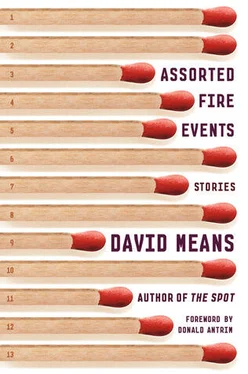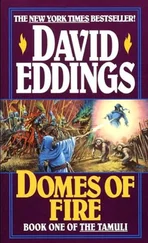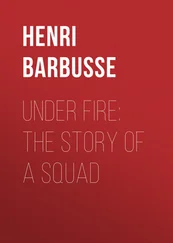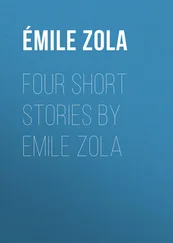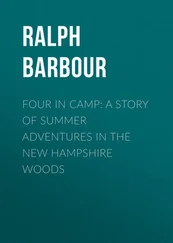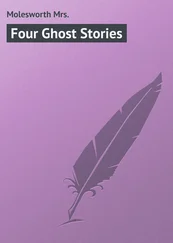David Means - Assorted Fire Events - Stories
Здесь есть возможность читать онлайн «David Means - Assorted Fire Events - Stories» весь текст электронной книги совершенно бесплатно (целиком полную версию без сокращений). В некоторых случаях можно слушать аудио, скачать через торрент в формате fb2 и присутствует краткое содержание. Год выпуска: 2012, Издательство: Faber & Faber, Жанр: Современная проза, на английском языке. Описание произведения, (предисловие) а так же отзывы посетителей доступны на портале библиотеки ЛибКат.
- Название:Assorted Fire Events: Stories
- Автор:
- Издательство:Faber & Faber
- Жанр:
- Год:2012
- ISBN:нет данных
- Рейтинг книги:4 / 5. Голосов: 1
-
Избранное:Добавить в избранное
- Отзывы:
-
Ваша оценка:
- 80
- 1
- 2
- 3
- 4
- 5
Assorted Fire Events: Stories: краткое содержание, описание и аннотация
Предлагаем к чтению аннотацию, описание, краткое содержание или предисловие (зависит от того, что написал сам автор книги «Assorted Fire Events: Stories»). Если вы не нашли необходимую информацию о книге — напишите в комментариях, мы постараемся отыскать её.
won a Los Angeles Times Book Prize, was nominated for a National Book Critics Circle Award, and received tremendous critical praise. Ranging across America, taking in a breathtaking array of voices and experiences, this story collection now stands as one of the finest of our time.
Assorted Fire Events: Stories — читать онлайн бесплатно полную книгу (весь текст) целиком
Ниже представлен текст книги, разбитый по страницам. Система сохранения места последней прочитанной страницы, позволяет с удобством читать онлайн бесплатно книгу «Assorted Fire Events: Stories», без необходимости каждый раз заново искать на чём Вы остановились. Поставьте закладку, и сможете в любой момент перейти на страницу, на которой закончили чтение.
Интервал:
Закладка:
To get home they drove the back road that skirted Congers’s property — a road zoned to remain two lane and quaint because along it lived those who respected the idea of two lanes itself, a road that had been accused only recently of killing four teenage kids. (Sloan was working that night, doing rounds, when the emergency room burst into life and the boy — the youngest of the group — was brought in with his arm missing and only half his face there, still alive, gasping, convulsing.) On the way home the bursitis in his knees made even the slight pressure on the accelerator almost unbearable. Maybe that’s it, he thought. Maybe the evil thing about pain is that it makes us sensitive to the smallest nuances of movement; the urge of a toe-pressure on the rubber pad of the Volvo’s accelerator, nothing at all, a thing you do your whole life without thinking, suddenly acutely real and complex; maybe that was it. Maybe Janet herself, with all her sensitivities, felt such things and couldn’t bear them. He held this idea, taking the rolling turns, passing the crash sight (a chalk x on the tree trunk, which despite its having outlived the kids, the car impact, and countless rough winters, would have to be cut down; a small clump of wild buttercups and a cross (although two of the four dead had been Jewish)). He held the idea of someone living with an acute awareness of things like a foot working a car accelerator. He held the idea of fear, panic, and pain, too, combined as they were that afternoon when he felt the constriction in his throat. He held the idea that Janet might be an acute feeler, like those huge concave spaces carved out of the rain forest and strung with wires, collecting faint radio pulses from the very darkest, remotest reaches of the universe. He held the idea that perhaps it had been perfectly right to scare Congers about the gallbladder problem, to put the truth into his ears. And he held the idea that maybe it would be better from now on to no longer urge his patients into wellness along the smoothest lines, but rather to cut into them with the exact news of their ill-being. He held on to the idea of pain itself as the center of the world, the location of its gravitas. He held onto the idea that there was nothing he could do for Janet, his beloved daughter. Janet sliced headlong into the world heedless of what she was doing to it. They were passing the empty spot where Congers’s house had stood that morning, now a prone monolith of darkness darker than the earth — a dark rectangle of nothing — and starlit gnarls of trees and the terraced land that would, in a few months, hold compact knots of houses, units, stacked against each other, painted that strange dull blue-gray. He held on to these ideas as he pulled into the driveway, set the automatic door to rising, and then drove down beneath the house, into the garage smelling of freon from the freezer (they kept meat stocked for the whole year, vacuum packets of veal and chicken), oil and gas from the mower, the rubber of car and bike tires. Then, in the baffled silence of the door set in its rubber seal, he turned to his wife of forty years and put his hand out and felt along the inside of her fleshy waist, squeezing her into silence (for she had been talking to him the whole way about Drew, Janet’s current boyfriend, who had a tattoo on his arm and flew sailplanes in Cancún). He was raising his lips to her lips. The constrictions in his throat were coming again, the muscle there to drive the food down, to make a simple thing like a swallow happen. To get rid of the sensation, he was kissing his wife. The night was silent around them. There were, as one would expect, tears of frustration. There were soft murmurs of love. There was his hand along her spine. And a few minutes later, the automatic door light, on a delayed fuse, popped off, sending them into the easeful dark.
THE GRIP
BENEATH HIM the metal gave and sang accompanied by the tedious clack of rail gaps; it was the couplings whacking each other, or something. Jim didn’t know the parts the way some did, the ones who had worked on the lines; he was just hanging on, and had been since the yards in Albuquerque, where he’d clambered up between cars and then, before he could jump back down, found himself stuck as the train opened up full throttle and darkness fell, which it did along this stretch of the Rio fast and quick, the sun sliding off the emptiness, leaving him with only his grip and a foothold that wasn’t sure. It was very cold. The heat rose up through the translucent sky, was gone, and he was left in his cotton shirt — moth-holed and tattered. (He’d left Ohio in this same damn shirt, the very same one.) He’d heard stories of men in the same circumstances, men betrayed by bad leaps onto sluggishly moving freights; he’d heard the tall tales of men who held on in poor positions all night, into the next day, and through another weary night until their tendons locked and their muscles broke and they were saved at the last second when the destination was reached or the train pulled to a siding to let an express pass. Then with their arms out like zombies they’d stumble off between the couplings and lay in the grass, scream into the sky. The other side, too, he’d heard. Those who held on for a night and then tried to find some way to climb up to the walk only to fall to a depraved death. The grip he had was a solid one, and there was a toehold below, on a shank of metal coming out of the car, a piece of broken hardware that had no apparent use. The foothold wasn’t much, and to keep it he had to rest his weight on the side of his boot, his arch; when that got sore, he moved back to his toes. About fifty minutes into the ride, he slipped off his toes and had to rely on his grip to keep himself from falling. That was when he decided it would be best to keep his arch over the nub. His buddy Roy was farther down, probably on top of a car, and maybe he’d work his way along and, looking down, see him there and somehow conspire to find a way to help him up, maybe making a loop with his belt (did he have a belt?), because Roy had been riding for months and knew the tricks of the trade. Roy had a tight-lipped, know-it-all look. He chewed over his knowledge, his tales of the road, long and hard before talking them out.
This was a long dull stretch of empty land, desert hard and straight, allowing the engineer to open it up so that the train, despite its enormous length, might sizzle through the landscape and make the yards in Fe by dawn; he reckoned his grip would hold until dawn, to say the least, and maybe through the next day if he had to do it, because he knew what had to be done to stay alive in this life. He’d been called an animal by his adopted aunt, and he found himself — as he wandered around — drawing strength and life from the comparison. One day after another it had been basically by living the life of an animal that he survived (he’d confessed all this to Roy in an apostolic rant by the campfire one night over a couple of bottles of sour mash); he figured his grip was tough enough, fingers thick and hard from the last job he’d had hauling ice in Ohio, wrists good and thick as the rest of his torso, at least down to his legs, which were long and thin and rather elegant; he figured all this would conspire to hold him onto the car at least to Fe.
Night settled on the train. The trails of light in the sky, which flickered above him, little feathers of high cirrus with orange and magenta hues, were swallowed up by the purest and finest dark he’d ever known. The dark seemed to be a thick oil pouring from under the train and up and over him until — this was an hour or two later — he wasn’t sure how long he’d been there and how long he was going to have to wait for dawn. He wasn’t sure of much except of the pain in his arch above the nub, and that he’d had to loosen his grip, flex his fingers, putting even more weight on that nub before he made the contortion — almost slipping off in the process — to get his weight transferred to the other foot.
Читать дальшеИнтервал:
Закладка:
Похожие книги на «Assorted Fire Events: Stories»
Представляем Вашему вниманию похожие книги на «Assorted Fire Events: Stories» списком для выбора. Мы отобрали схожую по названию и смыслу литературу в надежде предоставить читателям больше вариантов отыскать новые, интересные, ещё непрочитанные произведения.
Обсуждение, отзывы о книге «Assorted Fire Events: Stories» и просто собственные мнения читателей. Оставьте ваши комментарии, напишите, что Вы думаете о произведении, его смысле или главных героях. Укажите что конкретно понравилось, а что нет, и почему Вы так считаете.
